|
“This [the Feast of Pentecost] was to show that just as God in creating man had, as Holy Scripture expresses it, breathed into him the breath of life, so too in communicating a new life to his disciples to live only by grace, he breathed into them his divine Spirit to give them some share in his own divine life. The Spirit of God also ought to come and to rest upon you on this sacred day, to make it possible for you to live and to act only by the Spirit’s action in you. Draw him within you by offering him a well-disposed heart.” — St. John Baptist De LaSalle, Meditation 43.1 Every year at Pentecost, the Church celebrates its birthday, and this year — assuming Christ died in 33 A.D. — the Church will be celebrating its 1,991st birthday. That is 1,991 years of preaching, teaching, and pastoral care for the many and diverse people of God. Each day, I work with ninth and tenth graders in a Catholic high school, teaching them about Sacred Scripture and the Catholic Church. While teaching my sophomores about Church History, I continually receive similar questions: “How did the Church care for its people?” “Why did the Church do that when it seems so wrong by today’s standards?” These questions got me thinking about the Church’s choices in caring for the people of God across history and led me to teach Church history by contextualizing Pastoral Decisions within the historical context of the time period. This led my students to a deeper understanding of the ancient, medieval, and modern ages of the Church. I began this blog post with a quote from St. John Baptist de LaSalle on the gifts of the Holy Spirit given to the Apostles at Pentecost because the same Spirit and gifts have guided the Church since that day. In the early Church, the Holy Spirit guided the Apostles to go out from Jerusalem and preach to the people where they were already living their daily lives. Acts of the Apostles discusses Peter and other Apostles preaching in the Temple in Jerusalem, entering the homes of Gentiles, and traveling to cities across the Roman Empire to speak in public spaces. These first missions sought to bring Jesus’s Gospel message to people in their own cultural context, made possible by the Holy Spirit’s gift of being able to speak various languages from Pentecost. The early Church focused its sacramental life on the “breaking of the bread” or Mass, most likely occurring in people’s homes and dining areas in their preferred language, as seen in the Road to Emmaus story. These personal invitations to the Faith yielded great results and the founding of Christian communities across the Roman Empire. These localized communities, however, soon began to consolidate with new pastoral goals and programs in the aftermath of Constantine’s Edict of Milan which legalized Christian worship, and the subsequent shift of Roman religion from paganism to Catholicism. With Catholicism becoming the state religion of the Roman Empire, the Church gradually became a more established institution. Part of this was the adoption of the use of Latin in public liturgy. Since Catholics could now worship in newly founded Basilicas and Churches, a common liturgical language was needed to cater to all members of Roman society. Additionally, when the Western Roman Empire fell in 476 A.D., effectively breaking up the empire into states ruled by different ethnic groups across Europe, the Church stepped in as a stabilizing institution to help govern and rule a fractured continent. The necessities of common liturgical practices and a united Faith leadership led the Church to influence secular medieval and Renaissance rulers. Many in society today — including my students — look at this era of the Church as the height of Catholic control and corruption, and there were several corrupt leaders within the Church. Nevertheless, when shown as a unifying agent of society — with positive and influential leaders like St. Francis of Assisi, St. Dominic Guzman, and St. Thomas Aquinas — the Church’s evangelization and catechesis efforts come to the forefront. Even today, the Church references the documents and principles of medieval and Renaissance theologians to explain how the Church continues to live its authentic witness to the Gospel in the modern age. The Church of the modern age has naturally progressed from its ancient, medieval, and Renaissance roots. The Holy Spirit continues to guide Pope Francis, the Bishops, and lay leadership across the Church to pastorally respond to the modern needs of the Body of Christ. One of the most notable moments of a pastoral shift in the modern era was the Second Vatican Council, allowing greater expression of cultural diversity in the Church, Liturgy, and personal spirituality. Each Pope since Vatican II has continued to further explain and open the documents of the council for consideration and application among the faithful. In 2019, in his Post-Synodal Apostolic Exhortation to Young People in the Church, Pope Francis challenges the reader to “above all, in one way or another, fight for the common good, serve the poor, be protagonists of the revolution of charity and service, capable of resisting the pathologies of consumerism and superficial individualism” (Christus Vivit, No. 174). While addressed to young people to be agents of change in society, this is one of many challenges of Pope Francis that beg the faithful to continue witnessing to the Truth of the Gospel and Jesus’s Mission in their own life. Similar messages have been given throughout the long history of the Church, with the only difference being in language and historical context. The singular unifying agent of the Church’s Pastoral Care throughout history has been the Holy Spirit. Today, we must continue to ask the Holy Spirit for help and inspiration in our daily life to help us go forward with the love of Christ to be positive witnesses of the Church today. **This image is from: https://www.psephizo.com/biblical-studies/the-movements-of-pentecost/**
0 Comments
 We are in the time of the Upper Room, the Cenacle. The days between the Ascension of the Lord and Pentecost are liturgically the time when the Blessed Virgin Mary, the Apostles, and the disciples were together in prayer, awaiting the coming of the Holy Spirit. They did not really know what to expect. In fire and wind, the Holy Spirit came, and their lives were transformed forever. The world is also transformed and is transforming. The mission continues in the name of Jesus Christ! We are sent as apostles, as missionary disciples, out into the world. Hiding in a room, in our homes, even in a church is not our call. Instead, we go forth, going where the Holy Spirit moves us to go. We can do amazing things in the name of Jesus Christ. There is no need to wait until someone invites us. No, if we are baptized, and especially if we are confirmed, then we can go forth! We need to recognize, though, that we do not send ourselves. We are sent by Christ, in and through his Church. The community of faith that we call Church is where we go forth from and to which we return. The Church teaches us, forms us, heals and nourishes us through the Sacraments, and sends us on mission. The mission is not ours; it is Christ’s. We, as members of Christ’s Faithful, are called to live his mission until he comes again, just as the Apostles were told to do. In all of this, Mary, Queen of Apostles, is with us as our Mother and Queen. Her feast day is the day before Pentecost. She was the perfect disciple of Christ. St. Vincent Pallotti said of her: “We have most holy Mary, after Jesus Christ, the most perfect model of true apostolic zeal, and of perfect love” (OOCC I, 7). The Decree on the Apostolate of the Laity of the Second Vatican Council echoes this sentiment of Pallotti: “The perfect example of this type of spiritual and apostolic life is the most Blessed Virgin Mary, Queen of Apostles, who while leading the life common to all here on earth, one filled with family concerns and labors, was always intimately united with her Son and in an entirely unique way cooperated in the work of the Savior… All should devoutly venerate her and commend their life and apostolate to her maternal care” (4). Mary, Queen of Apostles, pray for us! May the charity of Christ urge us on! To learn more about Mary, Queen of Apostles, please click here. **This blog was originally published on May 19, 2021.**
“Why are you standing there?” The angels who spoke these words to the astounded disciples now turn to ask us this question today. Perhaps, like the disciples after the Ascension, we too have been stuck looking up at the sky, wondering where Christ is. Our answers to the angels’ question are probably very legitimate. “I am standing here because I lost my job, because of isolation, because of sickness, because of racial and social discord, because of people’s differences, because I don’t know what else to do.” In this passage from today’s Gospel reading, which is the same as this upcoming Sunday’s, I remind myself that at least the disciples were looking up. They at least had their eyes fixed on Christ. That, in and of itself, is a good thing. But what God wants to convey through the angels after Jesus’ Ascension is that just seeing Christ or believing in him is not enough. A relationship with Christ results not in paralysis, but in action. “You will be my witnesses,” Jesus tells his disciples moments before he ascends to the Father. And it is by living out our relationship with Christ as witnesses that the world comes to know him and that our faith comes alive. Witnessing to our faith and accompanying others on their faith journeys shake us out of our paralysis and help us overcome our fear. Jesus is not conveying that hardship, suffering, or unrest will be absent from our lives, but that these no longer have the power to paralyze and trap us. His Resurrection has changed the narrative. And as the Easter season comes to a close, Jesus is calling us not only to believe in him, but to act— to have our lives transformed by the knowledge of the Resurrection and to live boldly and faithfully as a result. At this point, however, the disciples are still focused on earthly things. Just before Jesus’ Ascension, they ask him, “Lord, are you at this time going to restore the kingdom to Israel?” Many of us have similar questions. “Lord, at this time will I get my job promotion? As this time, will my addiction be healed? At this time, will our family be reconciled?” These are valid, important questions of the human heart. Questions that long for answers, for resolutions, for miracles. Jesus’ response seems mystifying and even unrelated: “You will receive power when the Holy Spirit comes upon you, and you will be my witnesses.” While the disciples are still caught focusing on the restoration of Israel and victory over their oppressors, Christ promises more. So much more, in fact, that they are unable to grasp it without the gift of the Holy Spirit, whose coming we celebrate on the Feast of Pentecost on May 23rd. It is why Jesus chose to ascend at this time. He had spent 40 days teaching and opening the Scriptures to his disciples after his Resurrection, but they still could only fathom human goals and objectives. Jesus knows his ministry has come to an end and that a new chapter of the Church will begin with the promised Advocate, the Holy Spirit. After he answers them, Jesus compels his disciples to look up to the heavens as he begins to ascend to the Father. He is physically showing them the needed disposition of their hearts and minds in order to receive the Holy Spirit: they should be considering heavenly things and a heavenly goal. But then, moments later, they are startled to hear: “Why are you standing there looking at the sky?” It can be tempting at times to separate ourselves from the reality of the here and now by over-spiritualizing things or being preoccupied with the past or future. The disciples are left looking up (very understandably), but this looking up and clinging to Jesus in his physical form distracts them from the action to which he has called and chosen them: to be his witnesses to the ends of the earth. This balance between living in the world but not of it can be difficult to grasp and practice. It’s important first to consider where you find yourself today. Are you asking the Lord to restore the kingdom to Israel? Are you standing looking at the sky? Many of us are somewhere in between. Below are 6 practices that help ground me in Christ and deepen my ability to witness to his love:
By considering these practices, it is my hope that, renewed by the Holy Spirit at Pentecost, we will enter into Ordinary Time ready to be Christ’s witnesses to the ends of the earth. Christ calls us each to so much more than simply remain standing. For more resources on living as missionary disciples, please click here. **This blog is a repost from May 13, 2021.** **This image is from: https://young-catholics.com/3256/the-feast-of-the-ascension-year-b/** In preparation for Pentecost this year, I began reflecting on its significance in my life and the life of the Church. When we as Catholics hear the word “Pentecost,” several things may come to mind. To some it is simply the birthday of the Church, to others it is the day signifying the end of the Easter season, to others still it may be a day that comes and goes without notice. That is how Pentecost was for me for a long time: a day that happened without me noticing until I realized a week later that all of the Easter decorations in the church were gone. As I grew deeper in my faith, I began to see the importance of Pentecost as the start of the Church and the reception of the Holy Spirit, but there was still something missing in my understanding of this day. I knew that Pentecost was supposed to be more than just a day that comes and goes each year, but I struggled to see how a day that happened two thousand years ago would impact the way I live my life today. When we look at Acts 2, we can see what Pentecost was like. It was a time of prayer, fasting, waiting for God to fulfill His promises, and the fulfillment of those promises in the descent of the Holy Spirit onto the disciples. The beauty of this event when we look at it in Scripture is that this is not something that happened two thousand years ago. We know that Scripture is performative, that it is living, active, and does what it says. If we as Catholics are disciples of the Lord, then that means that this living reality of the descent of the Holy Spirit is something that we can experience as well, and we do so through the sacraments. And as disciples who have received the Holy Spirit, we can follow the footsteps of the Apostles and take the Holy Spirit with us out into the world, spreading the good news of the Gospel to those we encounter, using the gifts of the Holy Spirit to bring glory to God. Saint Pope John Paul II, Pope Benedict XVI, and Pope Francis have all spoken about the coming of and need for a new Pentecost. As the world we live in grows increasingly secular, as the number of people who know and experience the love of Jesus Christ diminishes, it is our job as Christians, as missionary disciples, to cry out for a new Pentecost. We must ask for the Holy Spirit to fall afresh on us like He did at Pentecost, to give us the gifts we need in order to guide those around us to encounter God. Through the gifts of the Holy Spirit that we receive at our Baptism and Confirmation—wisdom, understanding, counsel, fortitude, knowledge, piety, and the fear of the Lord—we have the ability to listen to the Holy Spirit and be obedient to His will in our lives. When we live with recognition of this reality, asking the Holy Spirit to guide us and our actions, we can live as witnesses like the Apostles did after Pentecost, carrying Christ’s Spirit in us at all times, allowing Him to breathe His life and love into those we encounter.
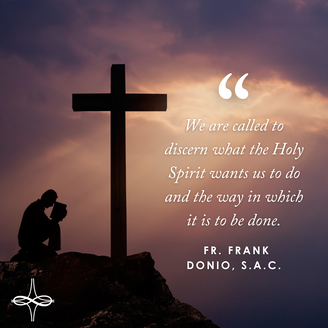 We can never forget that the Holy Spirit provides us with the ability to do what we do on mission for Christ. We can begin to think that what we do is simply of our own making. It is not. As with those in the Cenacle or Upper Room at Pentecost, we, too, have the power of the Holy Spirit moving and guiding us. We are called to discern what the Holy Spirit wants us to do and the way in which it is to be done. This part is a challenge. We want direct answers to our questions. When something gets difficult, we often want God to move those obstacles out of the way since we are doing the mission of Christ. And yet, one of the gifts of the Holy Spirit is wisdom, which teaches us that we are not in control, God is. As human beings, we so love to be in control, but we are not. God is and we, as believers, have faith which teaches us to trust in God and in God alone. Easier said than done. Being “filled with the Holy Spirit” (Acts 2:4), means that other things that fill us need to give way, especially the belief that we are in control. Instead, we are in what St. Vincent Pallotti called, “holy cooperation” with God. As baptized, we are co-responsible for the mission of Christ and the Church. He gave the mission to the Apostles to “go and make disciples” (Mt 28:19). We share in that same mission until Christ comes again! May the Blessed Virgin Mary, Queen of Apostles, intercede for us and the Charity of Christ urge us on! In Christ, Apostle of the Eternal Father, Fr. Frank They bought into the lie—that nothing had changed, that their dreams were stifled, that death prevailed. The locked doors reflected their locked hearts. Like anyone, they were afraid, inconsolable, at the point of despair. Save one—a virgin. She continues to model to us today what it means to live faith, what it looks like to be a disciple. The fear of the disciples in the upper room is understandable. They had abandoned the man whom they had left everything to follow for three years. The same man they had pledged to follow unto death had been tortured and killed as their backs were turned, as they cowered for their own lives. Their hopes of a restored Jewish kingdom, a glorious king from the line of David, freedom from Roman rule and the return of God’s presence to the Temple seemed to be nailed to a cross on Golgotha, laid in a tomb hewn from rock. They had yet to see God’s plan amidst the perceived failure. How could this be God’s plan? It was so unlike their own. Their fear is our own. It is the fear of unmet desires, of unworthiness, of death, of uncertainty, of perceived silence. Like the disciples, we often fail to see God’s plan in our lives. We look around in despair and sense that He is silent. We live the reality of death, confusion and suffering and say, “nothing good can come from this.” But as the disciples quickly realized, our ways are not God’s ways. Our wills are not yet one. Much stands in the way: selfishness, greed, egoism, materialism, pride. All changes with the coming of the Holy Spirit. What makes a law-abiding Jew abandon his persecution of Christians in favor of joining them and proclaiming the Christ to Jerusalem and Rome? What makes uneducated fisherman leaders of the universal Church and martyrs for the faith? What makes the son of a wealthy Italian merchant the begging founder of a religious order and a friend of the poor? What makes a cloistered nun in Lisieux a Doctor of the Church? What makes a German priest in Auschwitz volunteer to die in place of a father? What makes a modern day Italian mother and doctor offer her life for that of her child? The Advocate, the Holy Spirit. It is the Holy Spirit who is the game changer for the Church—what will now set the disciples apart from the whole world and what continues to set Christians apart today. The Holy Spirit is the active agent of conversion in man, the third person of the Trinity who opens up the Scriptures and sets our hearts on fire. It is the Holy Spirit who enables us to live our mission. The Holy Spirit, God’s love, is the difference between the fearful men in the upper room and the on-fire disciples of Christ preaching the Gospel and converting thousands in a single day. In the Gospel today, Jesus prays for his followers in the Garden of Gethsemane while also speaking directly to you and me. He prays for something seemingly impossible: “that they may all be one” as the Trinity is one. Christ speaks these words not to frustrate his followers but to call them to a perfection possible through God alone. He utters these precious words knowing he will be sending the Holy Spirit to enable man to do this. The goal is outward. This communion—the call to unity—must lead to mission: “that the world may know that you sent me and that you loved them.” God’s love is efficacious. It cannot be contained but must be proclaimed to the world. Only God could deign to give man so dignified and impossible a call. And only God could enable man to fulfill it. This high priestly prayer of Jesus (which encompasses John 15-17) is one of my favorite parts of Scripture. It is so imbued with Christ’s love for us. The purpose of the Incarnation is about to be revealed. Christ is living his last moments and wants to remind his followers, you and me, why he came: to reveal the Father, to invite man to eternity with Him and to assure man of his lovable-ness in the eyes of God. This love of God is meant to abide in us and reach out from our hearts to the hearts of others. This is only possible through the Eucharist, which physically is Christ’s love present in us and which is made possible through the Holy Spirit. God himself calls us, but God himself equips us…with Himself. It is astounding to what we are called: to holiness, divine love. This is the Christian destiny, but not our inclination. Like the disciples, so quickly do we turn inward. So quickly do we lock the door in fear. God calls us to sanctity, which can only be achieved after an experience of the fire of God’s love. We call this Pentecost, the same outpouring of the Holy Spirit that we receive in Baptism and Confirmation. The same outpouring of the Holy Spirit that we receive every Sunday in the form of the Eucharist. Are we being transformed by this grace or do we remain in the upper room? I challenge you to go back to your own story, your own moments of conversion. When did you fall in love with God? Have you? Only armed with the certainty of being loved will we be able to love others and live out the communion and mission Jesus calls us to. And so we call upon the Holy Spirit, the love of God Himself, who was breathed out upon the disciples at Pentecost in tongues of fire. We ask the Holy Spirit to breathe new life within us, within the Church. We ask the Holy Spirit to transform us with the fire of God’s love. This results in unlocked doors, an empty room. The disciples emerged, transfigured. Will you? **This post was originally published on 5/21/2015** 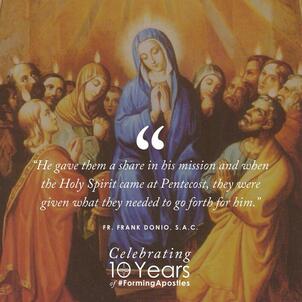 Pentecost is coming and we say, “Come, Holy Spirit.” As baptized, we are already “temples of the Holy Spirit,” with the seven-fold gifts given to us by the Holy Spirit at Confirmation. What do we mean when we say “Come, Holy Spirit”? We mean that we are open to where the Holy Spirit wants us to move. That is not easy. We want to be in control of where we are going and what we are doing. This is true not only as individuals, but also sometimes true as the Church. The time in the Cenacle or the Upper Room between the Ascension of the Lord and Pentecost provided a time of prayerful waiting and deepening as a community of faith in the Risen Christ. Jesus gave them a share in his mission and when the Holy Spirit came at Pentecost, they were given what they needed to go forth for him. Christ gives us the same share in his mission. The challenge is for us to discern in what ways we are called to live the mission of Christ. The Holy Spirit guides us and provides us with charisms to share with the community of faith and with the world. Through prayer and discernment, we can then act. Prayer, discernment, and action can be done on our own, but are often much more fruitful when done in communion with others. One person we can call on to be with us in our prayer, discernment, and action, is the Blessed Virgin Mary, Queen of Apostles, if we choose to ask for her guidance and intercession. We can learn from her example of discipleship of her Son. As apostles or missionary disciples of Christ, we go forth to revive faith and rekindle charity in our world. May the Charity of Christ urge us on! In God, the Infinite Love, Fr. Frank This May, we have the joy of spending the whole month in the Easter season. We begin this month not far removed from Easter Sunday and end the month by celebrating the Ascension. Some parishes will also start a Pentecost Novena leading up to Pentecost on June 5th. One quirk of celebrating the saints is that when their feast day falls on a Sunday, we typically don’t get to celebrate them at Mass and learn about their lives. This May, there are three outstanding saints whose feasts fall on the three Sundays leading up to Pentecost. St. Isidore the Farmer The feast of the 11th and 12th century saint, Isidore the Farmer, is celebrated on May 15th. I find the life of St. Isidore the Farmer incredibly inspiring. St. Isidore was not a priest or member of the clergy. Rather, he was a pious farmer who was devoted to his work and also attended daily Mass. Through his commitment to farming and to the Eucharist, he was able to make a difference in his community and become a role model for other farmers. In today’s world, I sometimes find it hard to work in a more secular field while I have friends who work for the Church. I think of the example of saints like St. Isidore the Farmer who lived out their faith in their work and this witness inspires me hundreds of years later. As we prepare for Pentecost, let us pray for the intercession of St. Isidore the Farmer in living out our faith throughout our daily work. St. Rita of Cascia A week later, on May 22nd, we celebrate the feast of St. Rita of Cascia. St. Rita was a 15th century married Italian woman who eventually became an Augustinian nun. She is known as the patron saint of marital problems because of the way she gracefully handled her difficult marriage and her husband’s death by a feuding family. After her husband’s death, she cared for her sons and eventually became an Augustinian nun who devoted herself to praying for peace in the community of Cascia. Along with St. Jude, she is also known as a patron saint of lost and impossible causes. As we continue to prepare for Pentecost, let us pray for the intercession of St. Rita of Cascia in any challenges that may be holding us back from growing in our relationship with the Risen Christ. Pope St. Paul VI On May 29th we celebrate the feast of Pope St. Paul VI, one of the most recently canonized saints. Pope St. Paul VI continued the Second Vatican Council after the death of Pope John XXIII and helped implement many of the decisions and reforms that came from the Council. Many of these decisions were incredibly challenging, but Paul VI was able to navigate the situation and is highly respected for his ability to lead the Church in difficult times. Paul VI also helped grow ecumenical relations with Eastern Orthodox and Protestant churches—a model which continued into the papacies of his successors. As we continue to prepare for Pentecost, let us pray for the intercession of Pope St. Paul VI in making difficult decisions that ultimately will help us grow closer to God and to our neighbor. To learn more about the saints, visit our Catholic Feast Days Website by clicking here. To view a calendar of the feast days in May, and each month, click here.
On Pentecost we celebrate the gifting of the Holy Spirit to the Apostles in the Upper Room. For nine days past they have been hiding in fear, awaiting this gift, the Advocate. The Holy Spirit descends upon the Church in an outpouring of love, and with Mary as their guide, the disciple’s mission begins: proclaiming the Kingdom, outpouring their gifts, and healing the world.
The Apostles were filled with fear up to this point. They had witnessed the Risen Lord’s Ascension into Heaven, and still their purpose was not yet realized. The liturgical calendar enables the faithful to reflect on our own lives, hearts, and mission. We are called to place ourselves in the very heart of the story, to participate as if this very event is happening today. And so Pentecost beckons the questions: “In what ways am I in the Upper Room, unsure of how the Lord is calling me to serve?” “What brings my heart to fear?” “In what ways am I holding onto lies, listening to a voice that is not the Lord’s?” Jesus Christ chose men and women who, like you and me, struggled with human fears, human sin, and human misunderstanding. We can resonate with their experience in the Upper Room, awaiting guidance and courage. The moment the Holy Spirit descends on those in the Upper Room, everything changes and their hearts are transformed. The Apostles baptized 3,000 people that very day. The mission of the Church begins, and the Apostles are equipped with what is needed to live out that mission. From Pentecost onward, the Gospel was shared and people were baptized from as far as India to Spain; miracles and healings took place in Jesus’ name! Now in 2021, we have the same Spirit, and this brings our hearts great hope. This is the very Spirit given to us in our Baptism and Confirmation! We have the power to spread the love and message of Jesus’ life and Resurrection to others because we are equipped with all that is necessary. It is easy to read of the Early Christians who bravely faced martyrdom and changed the world and to just dismiss it, as if the Spirit within them has diminished over time and no longer carries the same power. No, the call of the Christian is to open our hearts to this very same Spirit and ask Him to show us the path to love. The same Spirit that transformed the world through the Apostles can transform our world today. In our ordinary lives there can be extraordinary love, sacrifice, and renewal in and through the power of the Holy Spirit. Today we are called to open our hearts to the Holy Spirit’s transformative love, asking Him to show us the path to mission. In what ways is He calling you outside of yourself to love those around you? How can you let go of fear and open your heart to the burning fire of His love for you and the whole world? “For God did not give us a spirit of timidity but a spirit of power and love and self-control.” 2 Timothy 1:7 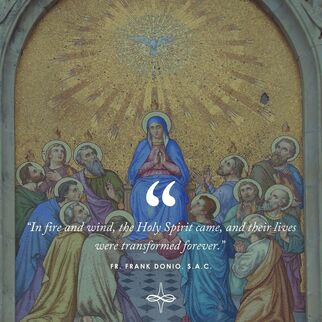 We are in the time of the Upper Room, the Cenacle. The days between the Ascension of the Lord and Pentecost are liturgically the time when the Blessed Virgin Mary, the Apostles, and the disciples were together in prayer, awaiting the coming of the Holy Spirit. They did not really know what to expect. In fire and wind, the Holy Spirit came, and their lives were transformed forever. The world is also transformed and is transforming. The mission continues in the name of Jesus Christ! We are sent as apostles, as missionary disciples, out into the world. Hiding in a room, in our homes, even in a church is not our call. Instead, we go forth, going where the Holy Spirit moves us to go. We can do amazing things in the name of Jesus Christ. There is no need to wait until someone invites us. No, if we are baptized, and especially if we are confirmed, then we can go forth! We need to recognize, though, that we do not send ourselves. We are sent by Christ, in and through his Church. The community of faith that we call Church is where we go forth from and to which we return. The Church teaches us, forms us, heals and nourishes us through the Sacraments, and sends us on mission. The mission is not ours; it is Christ’s. We, as members of Christ’s Faithful, are called to live his mission until he comes again, just as the Apostles were told to do. In all of this, Mary, Queen of Apostles, is with us as our Mother and Queen. Her feast day is the day before Pentecost. She was the perfect disciple of Christ. St. Vincent Pallotti said of her: “We have most holy Mary, after Jesus Christ, the most perfect model of true apostolic zeal, and of perfect love” (OOCC I, 7). The Decree on the Apostolate of the Laity of the Second Vatican Council echoes this sentiment of Pallotti: “The perfect example of this type of spiritual and apostolic life is the most Blessed Virgin Mary, Queen of Apostles, who while leading the life common to all here on earth, one filled with family concerns and labors, was always intimately united with her Son and in an entirely unique way cooperated in the work of the Savior… All should devoutly venerate her and commend their life and apostolate to her maternal care” (4). Mary, Queen of Apostles, pray for us! May the charity of Christ urge us on! To learn more about Mary, Queen of Apostles, please click here.
“Why are you standing there?” The angels who spoke these words to the astounded disciples now turn to ask us this question today. Perhaps, like the disciples after the Ascension, we too have been stuck looking up at the sky, wondering where Christ is. Our answers to the angels’ question are probably very legitimate. “I am standing here because of the pandemic, because I lost my job, because of isolation, because of sickness, because of racial discord, because of people’s differences, because I don’t know what else to do.” In this passage from today’s Gospel reading, which is the same as this upcoming Sunday’s, I remind myself that at least the disciples were looking up. They at least had their eyes fixed on Christ. That, in and of itself, is a good thing. But what God wants to convey through the angels after Jesus’ Ascension is that just seeing Christ or believing in him is not enough. A relationship with Christ results not in paralysis, but in action. “You will be my witnesses,” Jesus tells his disciples moments before he ascends to the Father. And it is by living out our relationship with Christ as witnesses that the world comes to know him and that our faith comes alive. Witnessing to our faith and accompanying others on their faith journeys shake us out of our paralysis and help us overcome our fear. Jesus is not conveying that hardship, suffering, or unrest will be absent from our lives, but that these no longer have the power to paralyze and trap us. His Resurrection has changed the narrative. And as the Easter season comes to a close, Jesus is calling us not only to believe in him, but to act— to have our lives transformed by the knowledge of the Resurrection and to live boldly and faithfully as a result. At this point, however, the disciples are still focused on earthly things. Just before Jesus’ Ascension, they ask him, “Lord, are you at this time going to restore the kingdom to Israel?” Many of us have similar questions. “Lord, at this time will I get my job promotion? As this time, will my addiction be healed? At this time, will the pandemic end? At this time, will our family be reconciled?” These are valid, important questions of the human heart. Questions that long for answers, for resolutions, for miracles. Jesus’ response seems mystifying and even unrelated: “You will receive power when the Holy Spirit comes upon you, and you will be my witnesses.” While the disciples are still caught focusing on the restoration of Israel and victory over their oppressors, Christ promises more. So much more, in fact, that they are unable to grasp it without the gift of the Holy Spirit, whose coming we celebrate on the Feast of Pentecost on May 23rd. It is why Jesus chose to ascend at this time. He had spent 40 days teaching and opening the Scriptures to his disciples after his Resurrection, but they still could only fathom human goals and objectives. Jesus knows his ministry has come to an end and that a new chapter of the Church will begin with the promised Advocate, the Holy Spirit. After he answers them, Jesus compels his disciples to look up to the heavens as he begins to ascend to the Father. He is physically showing them the needed disposition of their hearts and minds in order to receive the Holy Spirit: they should be considering heavenly things and a heavenly goal. But then, moments later, they are startled to hear: “Why are you standing there looking at the sky?” It can be tempting at times to separate ourselves from the reality of the here and now by over-spiritualizing things or being preoccupied with the past or future. The disciples are left looking up (very understandably), but this looking up and clinging to Jesus in his physical form distracts them from the action to which he has called and chosen them: to be his witnesses to the ends of the earth. This balance between living in the world but not of it can be difficult to grasp and practice. It’s important first to consider where you find yourself today. Are you asking the Lord to restore the kingdom to Israel? Are you standing looking at the sky? Many of us are somewhere in between. Below are 6 practices that help ground me in Christ and deepen my ability to witness to his love:
By considering these practices, it is my hope that, renewed by the Holy Spirit at Pentecost, we will enter into Ordinary Time ready to be Christ’s witnesses to the ends of the earth. Christ calls us each to so much more than simply remain standing. For more resources on living as missionary disciples, please click here. We may be well-acquainted with Lenten practices and devotions such as giving something up, abstaining from meat, or praying the Stations of the Cross. It can be more difficult, however, to name ways to observe the Easter season.
Yet in the Preface of the Eucharistic Prayer at every Mass during the Easter season, we hear: “It is truly right and just, our duty and our salvation, at all times to acclaim you, O Lord, but in this time above all to laud you yet more gloriously, when Christ our Passover has been sacrificed… Therefore, overcome with paschal joy, every land, every people exults in your praise and even the heavenly Powers, with the angelic hosts, sing together the unending hymn of your glory…”[1] What is “paschal joy” and how do we praise the Lord “more gloriously” in the Easter season? It is unreasonable to expect anyone to will themselves to be happy at any given moment, much less for an entire season. But joy is not the same as happiness, nor is it the absence of sadness. Joy is a fruit of charity. It flows out of love; it results from a participation in goodness. We feel joy in the presence of someone or something we love; we rejoice in the well-being of our loved ones. If our Lenten observance is focused on charity—particularly acts of charity such as prayer, fasting, and almsgiving—then joy flows naturally from them. The disciplines that turn our gaze outward to God and neighbor, the sacrifices we make, are all a participation in goodness, an act of love. Paschal (Easter) joy, then, can be seen as the fruit of our Lenten journey. Our Lenten efforts are not meant to be temporary measures. They are intended to effect lasting change in us, to conform us more profoundly to our Lord who died but has been raised. What can we do then, so that we don’t simply drop our Lenten observance now that Easter has arrived? How can we instead allow these observances to take root in such a way that they enable us to celebrate the Easter season more fully and joyfully? Consider one or more of the following suggestions to cultivate paschal joy and fill each of the fifty days of the season with festivities and devotions:
Click here for more resources to accompany you this Easter season. [1] Preface I-V of Easter, Roman Missal, Third Typical Edition. [2] Directory on Popular Piety and the Liturgy, no. 150, no. 152. [3] Directory on Popular Piety and the Liturgy, no. 153. [4] Directory on Popular Piety and the Liturgy, no. 154. [5] Directory on Popular Piety and the Liturgy, no. 155. [6] Cf John Paul II, General Audience, Wednesday, 30 May 1979 Are you tired of the feasting? We are at the tail end of feasting after the Easter season with the celebration of the Solemnity of Corpus Christi last Sunday. We experienced the 50 days of Easter, the Solemnity of the Ascension of the Lord, Pentecost, the Solemnity of the Holy Trinity, and finally, the Solemnity of Corpus Christi. In my family, we have partaken in a fair share of feasting on treats, and I am almost ready for a period of fasting again. The transition from the Easter season into Ordinary Time can lead to a misunderstanding of what the Church is calling us to during this liturgical season. It is easy to see Ordinary Time as boring or as a time for laziness, but if we look at the liturgical calendar and journey along with the Apostles in the Scriptures, we can see that it is just the opposite. Reflecting back on the Scriptures read during Lent and the Triduum, we see the disciples’ confusion about what Jesus was preparing them for. He warned them often that He had to suffer, die, and rise, and yet they were still in hiding and unsure of their mission after the crucifixion and Resurrection. Scripture states that they were locked in the Upper Room in fear of the Jews after Christ’s death and then that they were left “looking intently at the sky” after Christ’s Ascension. It is not until Pentecost, when the Holy Spirit descends upon the disciples, that the gift of understanding is given to them and they are able to go forth and spread the Gospel message. In celebrating the Solemnities of the Ascension and Pentecost after Easter Sunday, we come to understand our role as Christians on mission. We are reminded that we too are equipped with the Holy Spirit for the call to go out to all the nations and proclaim the Good News, baptizing in the name of the Trinity. We next celebrate the Solemnity of the Holy Trinity, a day to contemplate that the Holy Trinity is relationship itself, and we are invited into that relational exchange of love among Father, Son and Holy Spirit. As the Catechism explains, "By the grace of Baptism ‘in the name of the Father and of the Son and of the Holy Spirit,’ we are called to share in the life of the Blessed Trinity” (CCC 264). This Solemnity invites us to ponder the vastness and majesty of God in three persons and His great love for His creation. Finally, the Church celebrates the Solemnity of Corpus Christi (Latin for “Body of Christ”). Christ, after the Ascension, remains with us in the bread and wine transformed into His Body and Blood during the celebration of the Mass. This Solemnity focuses our attention and hearts on the greatest gift to the Church: the Body, Blood, Soul and Divinity of our Lord in the Holy Eucharist. Together with the celebration of the other feasts after Easter Sunday, the celebration of Corpus Christi is a moment of grace given to us today that propels us into this season of Ordinary Time. If we look at the calendar, the Church has been preparing our hearts to enter into this celebration of Corpus Christi. We needed Jesus to establish the Eucharist (Holy Thursday), to suffer, die and rise (Triduum), to return to the Father (Ascension), and to send the Church an outpouring of understanding for Her mission through the Holy Spirit (Pentecost). As a result, we can ponder and enter into the life of the Holy Trinity (Solemnity of Holy Trinity). All of these feasts prepare the Church for the Solemnity of Corpus Christi and for our journey into Ordinary Time. The Holy Eucharist is the strength for our journey in the ordinary. The Body and Blood of Jesus assists us in following the will of God as we receive God Himself. The Solemnity of Corpus Christi can be celebrated with hope that Jesus is with us in this Holy Sacrament, and the Church is calling us to continued growth in Ordinary Time. Questions for Reflection: How can you use Ordinary Time in order to grow in your faith? What graces from Lent and Easter can help propel you into Ordinary Time? The Feast of Pentecost occurs on the seventh Sunday following Easter Sunday. On this day, we commemorate the occasion of the Holy Spirit descending upon the disciples of Jesus, marking them each with “tongues of flame,” and allowing them to speak and proclaim in different tongues, or languages. To describe this moment in early Church history as a “tipping point” would be an understatement. Pentecost signifies a unique outpouring of God’s love and spirit upon those first men and women to follow Jesus Christ, empowering them to expand and carry His message of salvation to all nations. Today’s first reading from the Acts of the Apostles depicts this anointing of the Holy Spirit, in such a way that has inspired numerous works of music, literature, and art – including some artwork appearing here at the Catholic Apostolate Center! As I reflect on the mystery of Pentecost, and ponder what it could mean for us in this current day, I am drawn to these particular passages from today’s Scriptures: Reading 1: ACTS 2:1-11 “And suddenly there came from the sky a noise like a strong driving wind, and it filled the entire house in which they were. Then there appeared to them tongues as of fire, which parted and came to rest on each one of them.” Have you ever been in a room that was particularly quiet – and then suddenly, for no discernable reason, your senses sharpened dramatically? When I read today about the “strong driving wind” filling the entire house where the disciples were, this sort of heightened awareness is what I imagine the disciples could have felt right before the Spirit arrived and the tongues of flame appeared. Especially in this season following the Paschal mystery, I view this reading as an invitation to seek and contemplate God in the quiet places with an open heart to what may come. Reading 2: 1 COR 12:3B-7, 12-13 “There are different kinds of spiritual gifts but the same Spirit; there are different forms of service but the same Lord; there are different workings but the same God who produces all of them in everyone.” At Pentecost, the flames parted and “came to rest on each one of them [disciples].” I find this so encouraging! This past Lent, we read about Moses and the burning bush, from which God calls out, “Moses! Moses! ...Do not come near! Remove your sandals from your feet, for the place where you stand is holy ground.” Now, at the historical moment of Pentecost, fire is actually sent and bestowed upon each follower. God is still a mystery, as is the Holy Spirit – but a mystery that comes to us and rests upon us. We should not be afraid to be humble like Moses (removing our sandals before God) while at the same time accepting with joy and utilizing with courage the gifts the Spirit may bestow to each of us, according to our unique natures. Gospel: JN 14:15-16, 23B-26 "I have told you this while I am with you. The Advocate, the Holy Spirit whom the Father will send in my name, will teach you everything and remind you of all that I told you." This age of instant communication is hopeful and perplexing all at once. On the one hand, technological advances have made worldwide communication easier than ever – truly a remarkable gift! On the other hand, we have all experienced how shorthand communication styles can misconstrue intended messages and cause confusion or even lasting harm. To me, the promise of Pentecost speaks directly to these challenges. Through the Holy Spirit, we may learn to genuinely and faithfully connect with one another despite all of our perceived differences. There is a definitive continuation of the Easter message contained in today’s Gospel when we are told of “The Advocate… who the Father will send in my name.” We are not alone, even though we live long after the age of Christ. Perhaps this is what is meant when He once said, “I am with you always, until the end of the age” or “Where two or three are gathered together in my name, there am I in the midst of them.” I believe that the Holy Spirit does blow through the rooms of our houses and within our hearts, even today. And while we may not see with human eyes the flames and the dove from this narrative, I believe that we are all surrounded by people who possess the flame within and have allowed The Advocate to work through them – helping them to become little advocates, little flames, and little doves, living among us, bringing peace. There are few sights like a church on fire. The fire which raged from the roof of the Cathédrale Notre-Dame de Paris on the evening of April 15, 2019 was different: thanks be to God that it (at this time of writing) does not appear to be caused by anything more than renovation negligence and that no one was killed in the blaze. The evening of the fire, the attention of the world focused on the smoke billowing above the Parisian skyline as first responders battled the flames to save the most iconic church in France. In the scenes broadcast from the River Seine, I not only saw the intensity of the fire that toppled the historic spire, but I also observed the more subtle fanning of the embers of a faith long thought to be extinguished in the hearts of the French people.
Watching a tragedy stirs up strong emotions within even the most hardened of hearts. Many scenes of prayers being offered or sacred hymns being sung—despite perhaps intense feelings of helplessness—were reported by passers-by, pilgrims, and tourists alike. Furthermore, support was expressed around the world for the Church and her members in France. The sight of the beautiful cathedral of the capital city apparently being irreparably damaged was a very sad one indeed, especially during Holy Week. The many treasures at risk included the Most Holy Eucharist and relics of Christ’s Passion. Different people took different meanings from that incredible sight: many were shaking their heads and crying at the destruction of a landmark cultural icon, others mourned the apparent loss of a grand local spiritual refuge, and some saw a Church which has long suffered against secularism appear in danger of collapse. Here’s what I observed: seeing a church burning on live television is indeed a heart-stopping scene, but I am—and dare I say God is—more interested in seeing hearts burn within a person! Seeing a man fully alive and in touch with his values, faith, or beliefs rather than suppressing them when inconvenient or unpopular is inspiring and a great witness. The voices of the people in Paris were publically lifted in singing ancient hymns and prayers for the salvation of the physical church building and the Catholic Church overall. Secularism has long been taking root in France, so seeing this active and public embrace of faith was incredibly touching. In times of despair or tragedy, people have been historically observed to seek sanctuary and emotional healing in churches and places of worship. Just think of cities in Europe, at risk of invasion or disease, in which people flocked to pray together for deliverance or divine mercy. Even in the United States after 9/11 and other heinous acts of violence, the churches with formerly empty pews were crowded with voices raised together in hopeful prayer to counter bowed heads of sorrow. As Christians we do not mourn like those who have no hope, but even in our sadness we can lift our eyes to God, breathe to calm ourselves, and confidently pray, “Speak, Lord, for your servant is listening.” From these collective acts of faith, the hope of spiritual renewal can be strong. The seeds of faith instilled in youth but unnourished later in life may suddenly be rediscovered and re-cultivated by God’s grace and perhaps the shock of the sudden end of the status quo. Intense personal reflection and the reevaluation of priorities may ensue to further sustain spiritual growth and comfort. Imagine the state of the Church had the apostles not been inflamed with the indwelling of the Holy Spirit at Pentecost. Just as those followers of Christ rediscovered God in the Upper Room thousands of years ago, so too can we encounter the fire of the Holy Spirit to bring light to the confused, healing to the broken, and peace to the conflicted. The fires of faith have not been extinguished, as we have beautifully seen, but rather the embers are still hot and glowing, just needing to be stirred up again to blaze towards Heaven. As Pope Francis tweeted, let us “unite in prayer with the people of France, as we wait for the sorrow inflicted by the serious damage to be transformed into hope with reconstruction. Holy Mary, Our Lady, pray for us.” May Notre-Dame, our Blessed Mother, pray for us! |
Details
Archives
July 2024
Categories
All
|
About |
Media |
© COPYRIGHT 2024 | ALL RIGHTS RESERVED

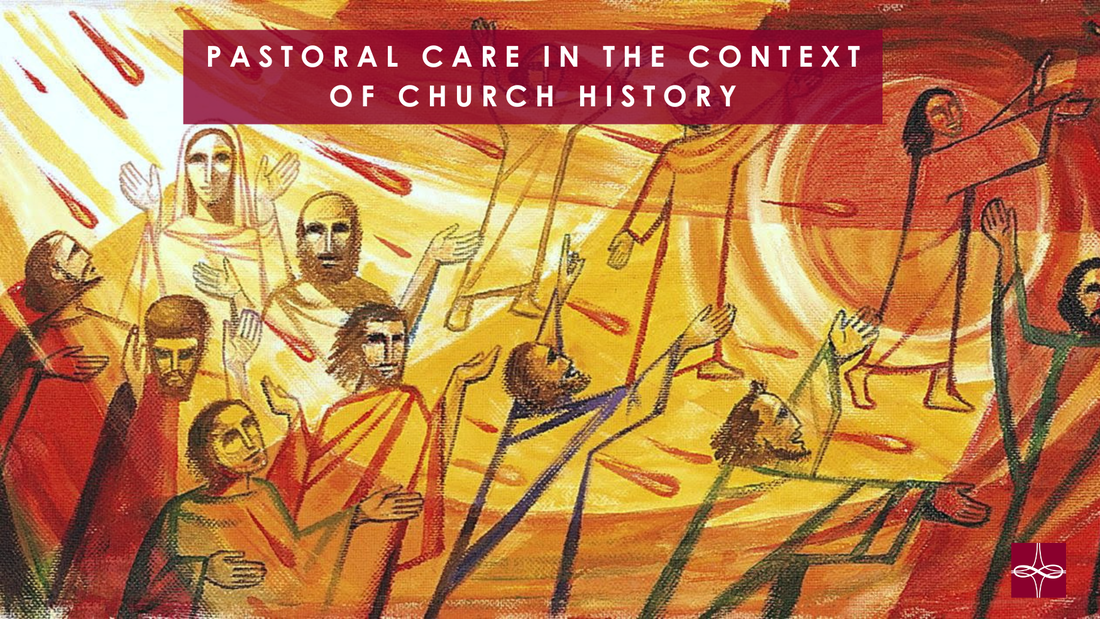

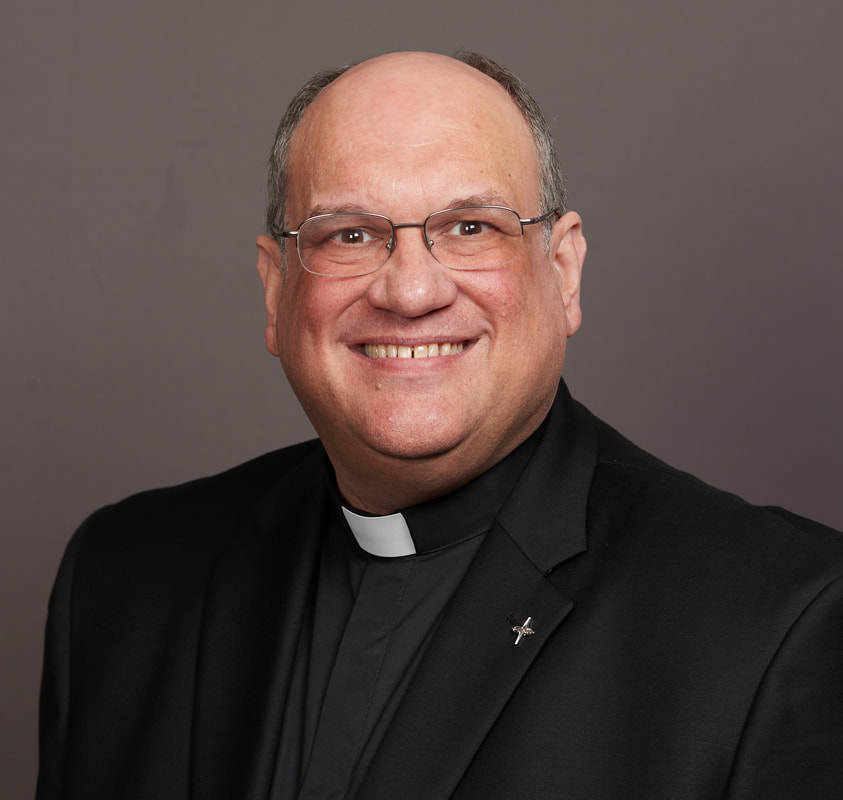
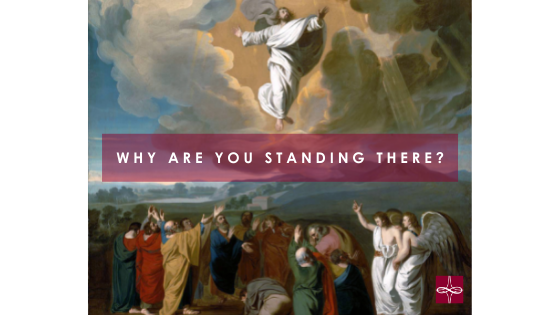

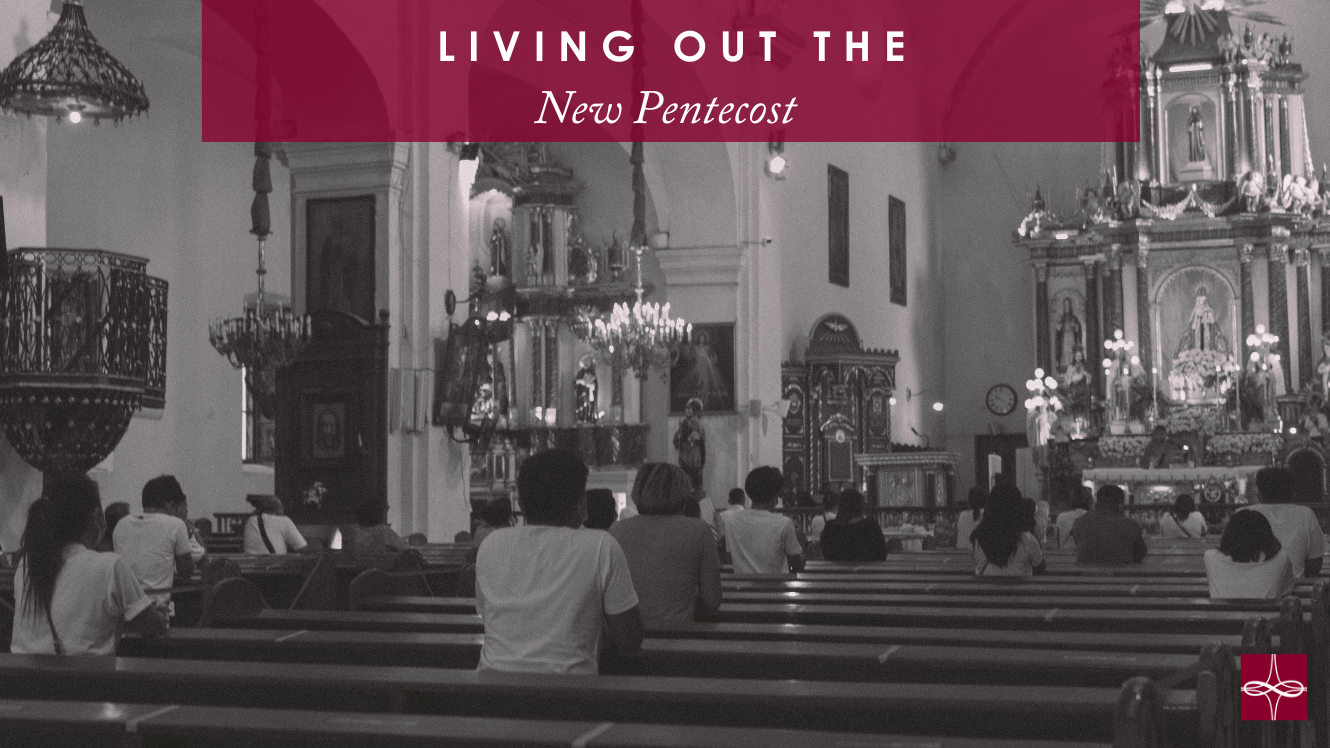

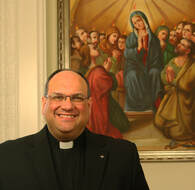
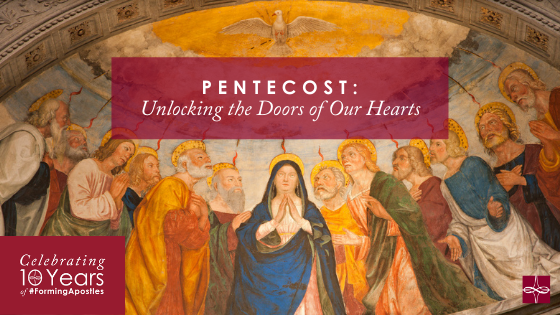

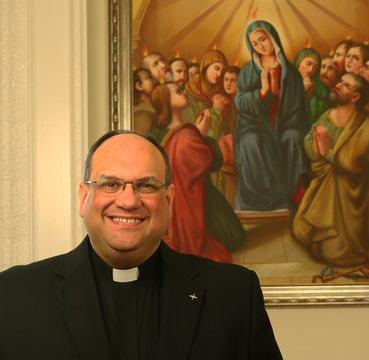
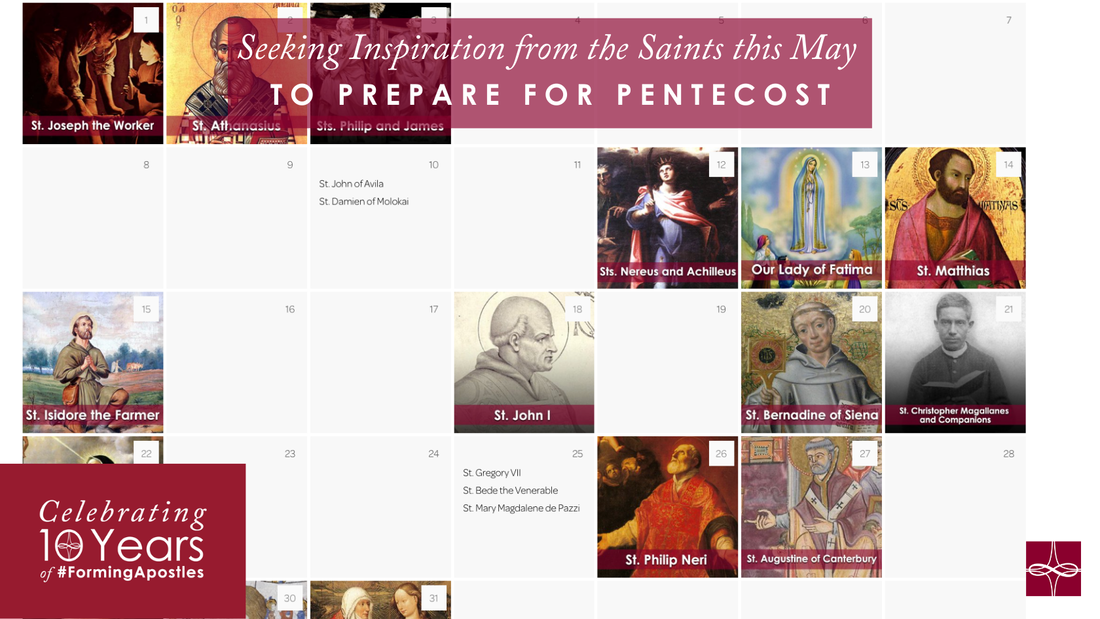
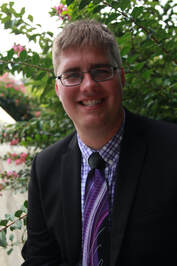
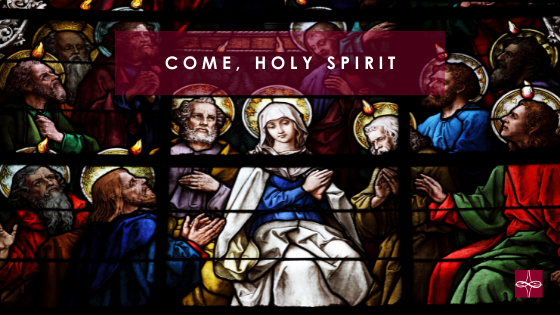

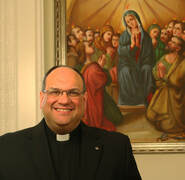

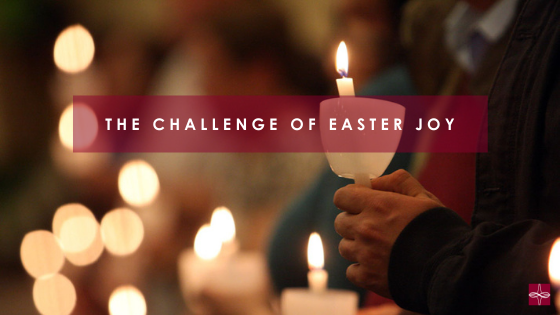

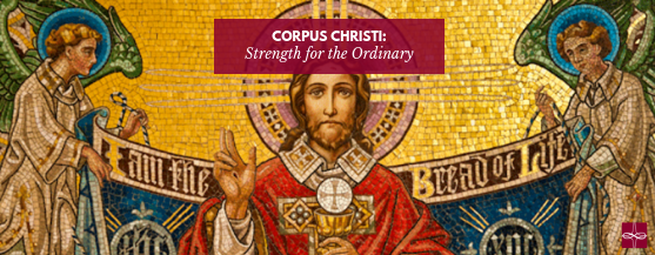

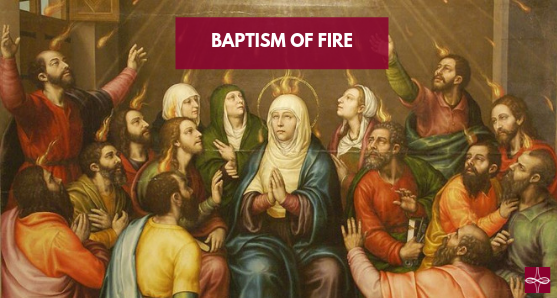

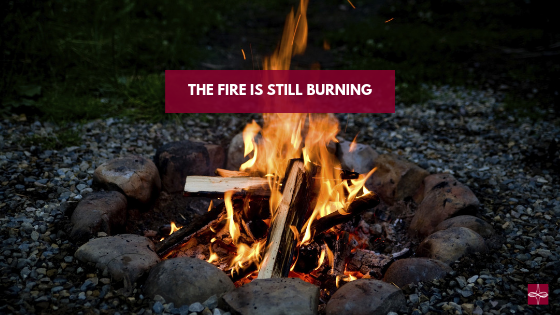

 RSS Feed
RSS Feed